With a General Election looming, RailReview asks two industry leaders (John Davies of Trainline and David Pitt of SilverRail Technologies) what they think the main political parties should be including on rail in their election manifestos…
John Davies, Vice President Industry Relations, Trainline
 How is transport policy best presented in a political party’s manifesto?
How is transport policy best presented in a political party’s manifesto?
Few votes are won and lost over the detail of retail policy, so arguably we shouldn’t propose a transport section at all.
Instead, let’s portray transport policy through the outcomes that politicians (and voters) care most about - economic growth, cost of living, levelling up, climate change.
Rail is an enabler that can unlock benefits in these key priorities. Let’s showcase targeted interventions to address these issues, and that will go a long way to both improving customer experience and boosting rail’s reputation in the corridors of power.
Thanks to digital ticketing, we have the capability to study passenger behaviour in detail and in real time. We are generating data about our customers like never before, so let’s utilise it and act on what it tells us.
We live in a world where supermarkets have long bombarded us with targeted offers and short-term sales, because they know they have to fight hard to attract our custom. Now the rail industry can finally equip itself to follow suit, so let’s do this and start upping our commercial game.
How about a year of trialling radical fares reform to boost the economy? Implementing incentives that are right for local market conditions would be real levelling-up in action.
Germany recently trialled the €9 (£7.70) ticket and subsequently refined the proposal into an unlimited monthly ticket for €49 (£42.11).
Scotland’s upcoming six-month experiment with scrapping peak fares is a bold idea, and the lessons learned will be useful for the Westminster Government.
But why stop there? The list of potential commercial incentives we could trial is endless - anything from a new subscription model to introducing free-travel Fridays.
We know one size doesn’t fit all, and that the London-Manchester market obviously needs different incentives to rural Cornish railways, for example. But the best approach would be to start experimenting now so we can confirm in practice what does work well where.
My home station of York has been transformed in recent years, with the space formerly occupied by 16 busy ticket windows now home to a retail unit, thanks to the huge popularity of e-tickets with customers.
The rollout of e-ticketing is close to completion, and this programme should be accelerated.
In turn, this creates space on stations which can be reimagined. Let’s offer these to address other Government priorities - depending on the location this could be revitalising town centres, creating community hubs, or even allowing redevelopment for housing.
How does doubling rail’s share of the inter-city market versus road and air sound for an environmental policy?
This has been the outcome of introducing competition on inter-city routes within Italy. On the Rome-Milan route, over the course of a decade the competition between Trenitalia and Italo has led to passenger numbers doubling, average prices falling by 40%, and rail’s modal share increasing from 36% to 75%.
In Spain, competition between operators is much more recent, but the results are still striking. The Madrid-Barcelona route has gone from one operator to four in little over 15 months. At Trainline we’ve tracked the data and seen average prices fall by 49%.
How about a commitment to expand inter-city open access in England, to see if we can achieve the same results? Halving the cost of inter-city rail travel would make for an attractive cost-of-living manifesto policy.
To support levelling-up, let’s accelerate the benefits of pay-as-you-go travel across the country. London has a great success story that the rest of the country is jealous of, but the good news is that it can be replicated without requiring huge capital investment in new gates or readers.
We can use tech to develop a new answer (it’s something the team at Trainline is currently working on), which would offer many of the same benefits at the fraction of the cost.
Another idea: create a green railcard to help reduce carbon emissions from transport (the single largest contributor to UK domestic greenhouse gas emissions).
At Trainline, we have been arguing for a while now that sustainability is rail’s secret weapon for growth, but we need to make it less of a secret. A green railcard would provide better incentives for travellers to make the sustainable travel choice, and help the industry market our sustainability benefits to potential customers. It also sounds snappy enough to appeal as a politician’s soundbite.
So, there’s my manifesto. No grand plan for rail, but instead a series of radical reforms which are laser-focused on helping the customer and deliver against political priority issues.
Combined, they can boost customer numbers, help industry finances, and put rail in a stronger, healthier and happier place.
David Pitt, Vice President UK, SilverRail Technologies
 Prior to the pandemic, rail passengers were already unhappy with the rising cost of travel. And whether HM Treasury likes it or not, the dependency on rail for commuting purposes is not what it was.
Prior to the pandemic, rail passengers were already unhappy with the rising cost of travel. And whether HM Treasury likes it or not, the dependency on rail for commuting purposes is not what it was.
This does not mean that the railway has no future. It does… and it’s a very strong future. But it requires a very large shift in mindset if this future is to be realised.
This year, there is going to be a General Election, and whichever way the tide turns, the government of the day has to bring forward some radical thinking that is not controlled and/or vetoed by the Treasury.
Over the past 24 months, since the publication of the Williams-Shapps Plan for Rail, we have all noticed the vacuum in which the industry has had to operate.
Looking ahead, whichever party finds itself in government after the next election, there are many areas of improvement that need to be progressed quickly.
Manifestos should be clear on how the current industrial action is to be resolved and the underlying issues removed, for good.
The railway network, even when operated by private companies, remains a public service. Having a dependency on private operators to train a sufficient number of drivers, for example, with the alternative being cancelled services, does not feel like a wise position for the industry to be left in.
Clearly there needs to be more safeguards in place to protect the ‘service’ if confidence is to return and remain. Equally, having the public suffer a catastrophic loss of services at the behest of unions also does not feel like a good place to be, for either the industry or the country.
Policy should also take account of the never-ending pace of change in technology. Until now, the industry has done a great job at trying to remain in the last century, with the complexities of the Ticketing and Settlement Agreement that was written before most people had heard of the internet.
Flexibility has to be built into the system, which includes any agreements that dictate operational activities and services.
Looking ahead, either party would do well to think about how railways can be placed at the heart of mass transit, with a long-term affordable plan to bring back some of the lines closed in the 1960s so that communities can once again be joined up.
One example that I find astonishing is that there is no direct line between Derby and Manchester and the numerous towns inbetween, because it’s possible to travel via Crewe or Sheffield.
The fact that these journeys just aren’t viable when considered alongside driving seems to have no impact on the debate.
As first referred to in the 1998 White Paper - A New Deal for Transport: Better for Everyone - it could also be argued that there is now a strong case for government policy to finally develop a national plan to integrate rail with the wider transport network.
The ‘first and last’ mile (as it’s become known) is a difficult nut to crack for local authorities in isolation, primarily due to the high cost and almost zero margins in solving this problem.
With a national plan, however, a centralised marketplace could be created that allows both private and public operators to offer their services within a payments framework whereby micro-payments would pass between providers and joined-up service contracts, ensuring that any delays with one operator do not cause the customer to be out of pocket with the next provider.
This level of service operates well in Sweden and is underpinned by 20-year-old technology. Every aspect of the journey needs to be considered - including the cost of parking, which at some stations can also be prohibitive.
With the creation of Great British Railways, we now have an opportunity to incorporate the railways into the fabric of society and to support future economic growth across the country.
Whether you think Nationalisation is the saviour of our railways or a stepping back in time that will pitch our trains against the NHS for funding, it is clear to see that the centralisation of our railways has clear benefits to offer - including a national centralised retail service that would help bring competition into this space, along with innovation across retail channels and new markets.
Manifestos must recognise that fares cannot keep increasing year on year when the service simply isn’t good enough. Instead, any future government has to be prepared to invest to ensure that the rail industry does not fail, by developing with a growth mindset in place of a downward spiral of cost savings.
Whichever party forms the next government, we need to see imagination and action. But above all else, the rail industry needs some very clear leadership.
- This article was published in the Q2-2023 issue of Rail Review.

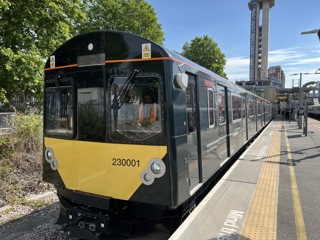
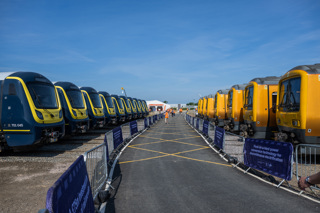
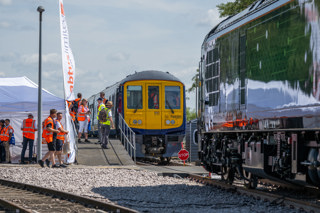

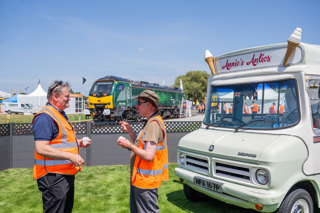







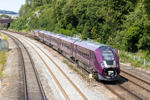



Login to comment
Comments
No comments have been made yet.